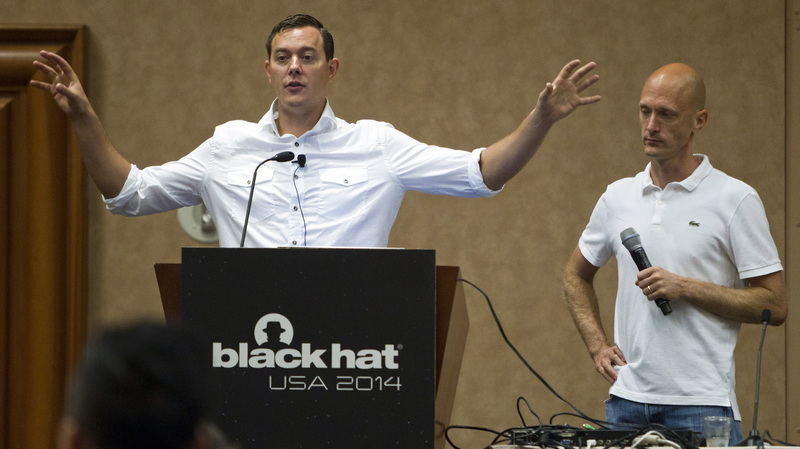 i
i Chris Valasek (left) and Charlie Miller focus on hacking into automobile computing device programs all the way through the Black Hat u . s . 2014 hacker conference in Las Vegas last August. Steve Marcus/Reuters/Landov hide caption
itoggle caption Steve Marcus/Reuters/Landov
Chris Valasek (left) and Charlie Miller talk about hacking into car desktop techniques all through the Black Hat usa 2014 hacker conference in Las Vegas final August.
Steve Marcus/Reuters/LandovAndy Greenberg changed into minding his personal enterprise, driving a Jeep Cherokee on the motorway in St. Louis when the SUV's air vents suddenly begun blasting bloodless air. Then the radio switched stations and started blaring hip hop at full volume. Spinning the radio manage knobs did nothing. quickly, the windshield wipers turned on and wiper fluid obscured Greenberg's view.
Then things all started getting basically interesting.
Let's cease the story for a moment. Greenberg is a senior creator for Wired and he knew he become taking half in a demonstration by way of Charlie Miller and Chris Valasek. For years, the two researchers were hacking cars' onboard computer systems to display that modern vehicles are susceptible to a variety of cyber exploits.
You may additionally be aware that NPR's Steve Henn suggested on their experiments in 2013. lower back then, Miller and Valasek proven that they could jerk the wheel of a Prius or kill the brakes of a Ford break out — using laptops wired to the cars' computing device programs.
This time, although, they did not ought to be within the vehicle — or any place near it — to wreak havoc on the controls. From miles away, the researchers had been in a position to use a mobile connection to entry the Jeep with Greenberg in the back of the wheel.
Now, again to Greenberg's 70 mph force from hell:
"as the two hackers remotely toyed with the air-conditioning, radio, and windshield wipers, I mentally congratulated myself on my braveness beneath power. that's after they reduce the transmission.
"automatically my accelerator stopped working. As I frantically pressed the pedal and watched the RPMs climb, the Jeep misplaced half its velocity, then slowed to a crawl. This came about simply as I reached an extended overpass, without a shoulder to present an break out. The experiment had ceased to be fun... .
"cars lined up in the back of my bumper earlier than passing me, honking. I could see an 18-wheeler coming near in my rearview replicate.
Greenberg failed to come to be in an ambulance. He changed into capable of roll the Jeep down an exit ramp and regain full control after turning the ignition on and off.
Miller and Valasek had taken over the Jeep after detecting a vulnerability in Uconnect, the computer equipment Chrysler makes use of. Greenberg explains in his Wired record:
"Uconnect, an internet-related computing device function in tons of of hundreds of Fiat Chrysler vehicles, SUVs, and vans, controls the car's amusement and navigation, enables cellphone calls, and even presents a Wi-Fi scorching spot."
Chrysler has issued a notice on its website that a free patch for the vulnerability is available for down load or via buyers. "The security and self belief of our shoppers is critical.," the company says. "comparable to a smartphone or tablet, vehicle software can require updates for superior security coverage to cut back the skills risk of unauthorized and unlawful access to car programs."
And on Tuesday, Sens. Edward Markey, D-Mass., and Richard Blumenthal, D-Conn., introduced law that would require the national dual carriageway site visitors defense Administration and the Federal alternate fee to "set up federal specifications to at ease our vehicles and protect drivers' privacy." Their bill would also establish a ranking system to let consumers know how neatly their vehicles give protection to drivers' security and privacy.
previous this 12 months, Markey issued a report warning of instant vulnerabilities corresponding to people that Miller and Valasek proven.
Comments